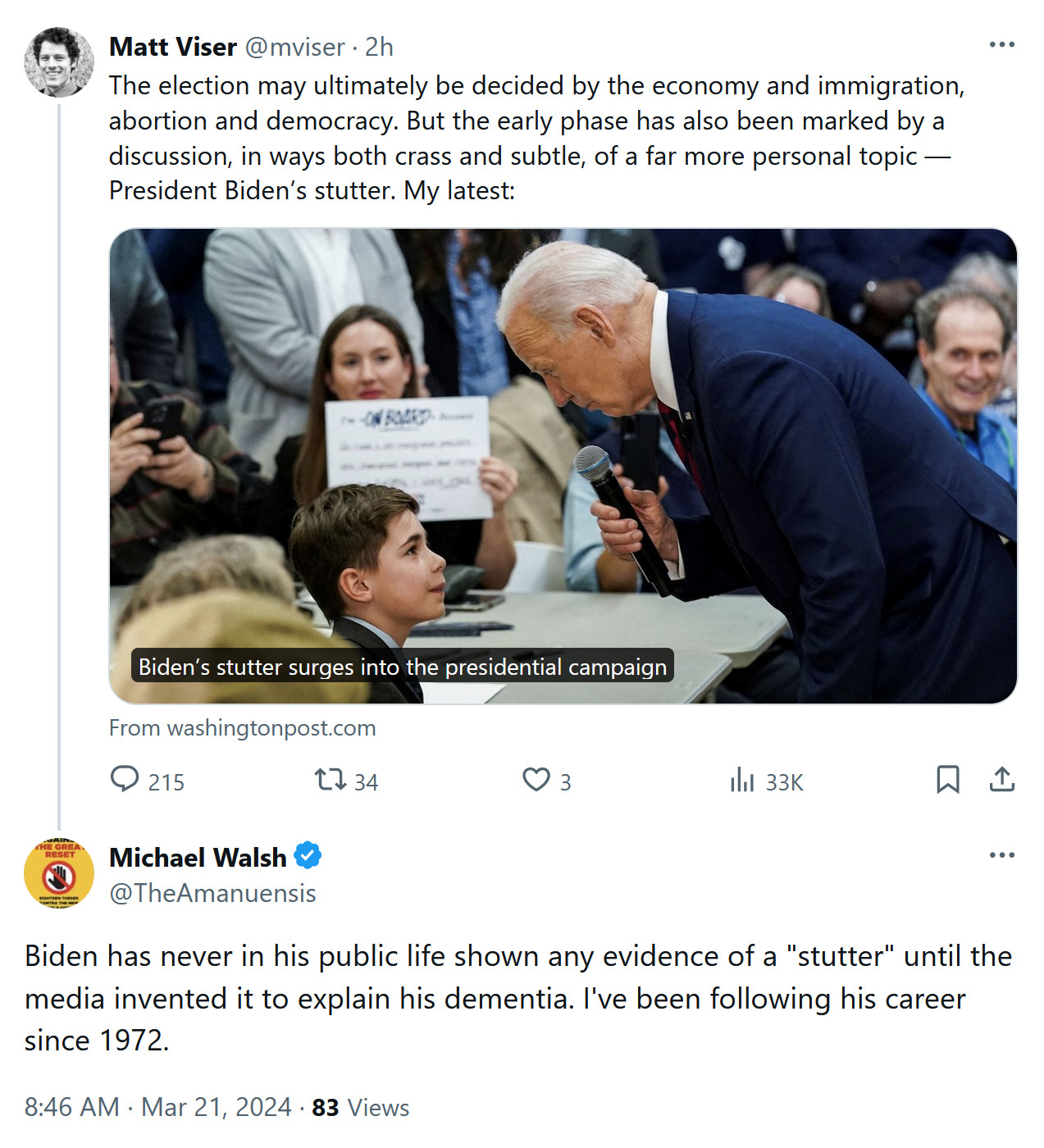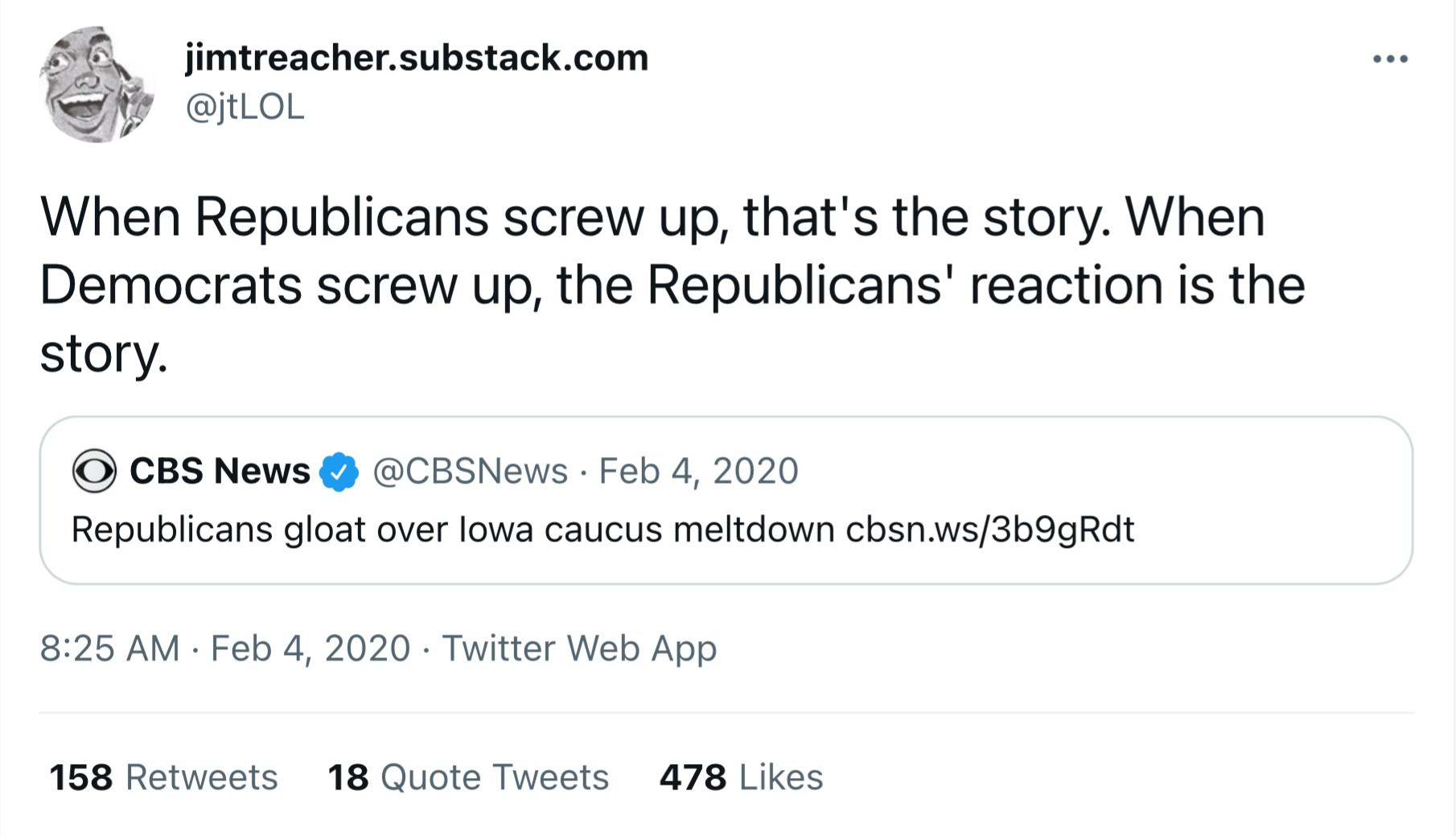ALL THE NEWS THAT’S FIT TO MEMORY HOLE: Drama at The New York Times.
If you’ve read anything about the tumult at The New York Times in recent years—here’s one account by James Bennet, who was ousted as opinion editor at the paper in 2020—you’ll know many Times employees see themselves as activists first, and reporters and editors second. You’ll also know that Times’ leadership has usually cowed before those activists.
Now, the paper’s staffers are locked in a new internal fight—over an investigation that Hamas committed horrifying sex crimes and rapes against Israeli women on October 7. But in this case, the Times’ top brass appears to have grown a backbone. Will they hold firm? Eli Lake reports.
* * * * * * * * *
Former Times journalists have also been a conduit for grievances on social media. Soraya Shockley, a former producer for The Daily, took to Twitter on February 10 and claimed many in the newsroom were “ringing the alarm bells for the last four months” about “Screams Without Words.” Another former Times journalist who resigned in November after signing a letter protesting Israel’s war in Gaza, Jazmine Hughes, has been another channel for discontent in the newsroom. In February she first posted to X a screenshot of the message Slack users receive when attacking colleagues.
One Times reporter confirmed that during the editing process of “Screams Without Words,” reporters and editors in the newsroom voiced objections to the article. “This piece was closely edited and bulletproofed,” this reporter said. “It was subjected to a high degree of internal hostility, and everyone knew they couldn’t afford to get it wrong.”
It’s unclear if the newspaper will eventually cave as it did in 2020. One factor that is different, though, is that the Times has at least officially warned its 5,800 employees that defaming colleagues on Slack will no longer be tolerated.
The problem for the Times is that many of its own staffers do not want to investigate the sexual violence that occurred on October 7. They see it as a vulnerability to their own side in the information war about Gaza.
“There are a huge number of people at the Times who are activists, and it is their job to tell a particular story,” one Times reporter told The Free Press. “The precedent was set that this works. If it doesn’t work through one means, they will find another.”
As Ben Shapiro wrote last week on “Jonathan Glazer’s Evil Oscars Display,” after Zone of Interest won for best International Feature Film:
In reality, Glazer is the villain of his own film. In “Zone of Interest,” there are no Jews: all we can hear of them is their screams from beyond the wall. Otherwise, they are nameless, faceless victims. And those are precisely the kinds of Jews Glazer likes. He’s happy to use their corpses to win Oscars, even as he attacks the live Jews defending themselves from the ideological descendants of the Nazis, Hamas.
All of which makes sense. After all, as author Dara Horn has pointed out, people love dead Jews. It’s the live ones who are so problematic for people like Jonathan Glazer. The live ones have the unfortunate habit of fighting back and making life uncomfortable for doctrinaire left-wingers who want to be accepted in their morally benighted social circles.
Similarly, it’s useful to know that many at the Times would be rooting for the Hoess family when they see the movie.


